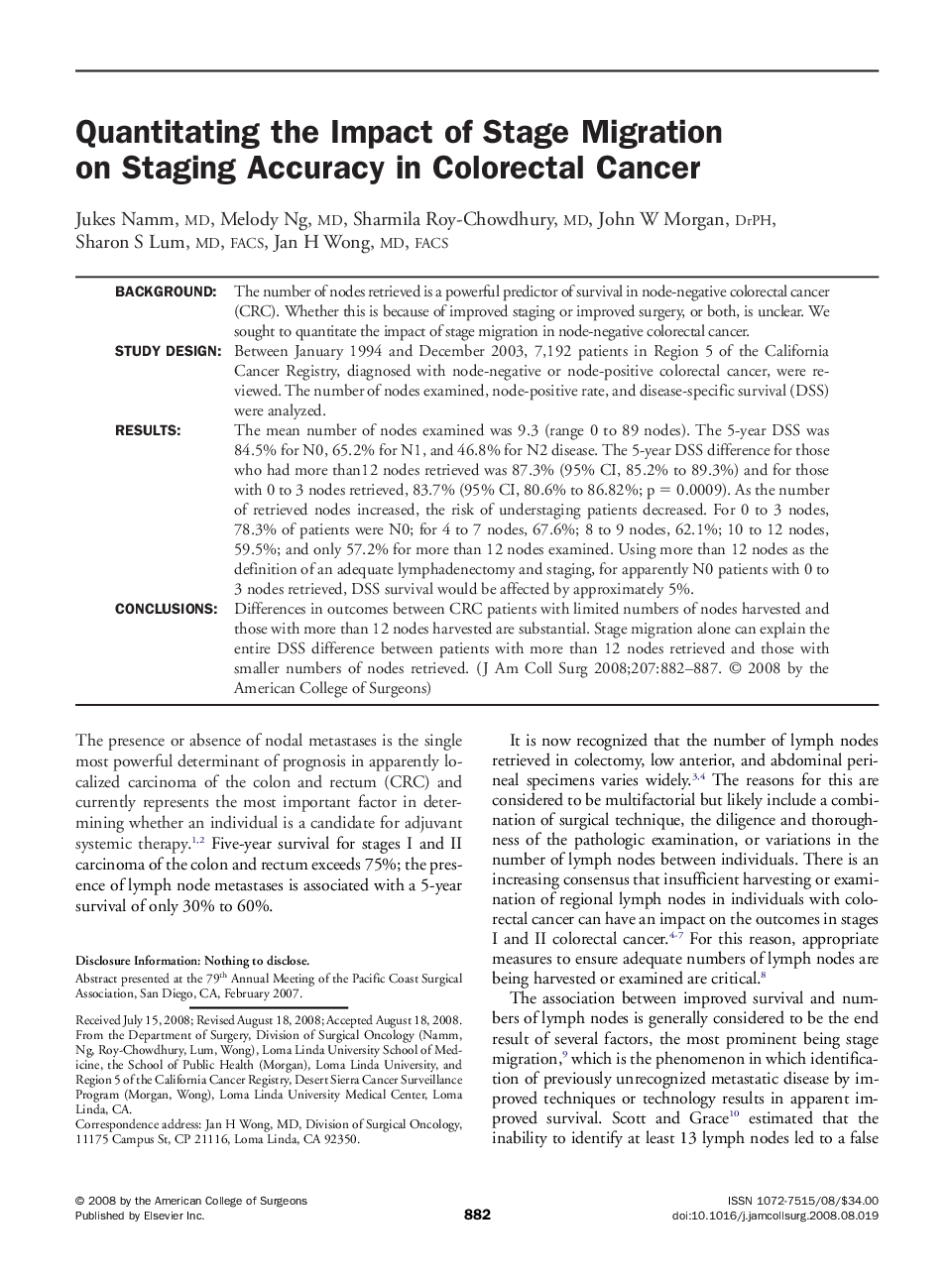| Article ID | Journal | Published Year | Pages | File Type |
|---|---|---|---|---|
| 4294501 | Journal of the American College of Surgeons | 2008 | 6 Pages |
BackgroundThe number of nodes retrieved is a powerful predictor of survival in node-negative colorectal cancer (CRC). Whether this is because of improved staging or improved surgery, or both, is unclear. We sought to quantitate the impact of stage migration in node-negative colorectal cancer.Study DesignBetween January 1994 and December 2003, 7,192 patients in Region 5 of the California Cancer Registry, diagnosed with node-negative or node-positive colorectal cancer, were reviewed. The number of nodes examined, node-positive rate, and disease-specific survival (DSS) were analyzed.ResultsThe mean number of nodes examined was 9.3 (range 0 to 89 nodes). The 5-year DSS was 84.5% for N0, 65.2% for N1, and 46.8% for N2 disease. The 5-year DSS difference for those who had more than12 nodes retrieved was 87.3% (95% CI, 85.2% to 89.3%) and for those with 0 to 3 nodes retrieved, 83.7% (95% CI, 80.6% to 86.82%; p = 0.0009). As the number of retrieved nodes increased, the risk of understaging patients decreased. For 0 to 3 nodes, 78.3% of patients were N0; for 4 to 7 nodes, 67.6%; 8 to 9 nodes, 62.1%; 10 to 12 nodes, 59.5%; and only 57.2% for more than 12 nodes examined. Using more than 12 nodes as the definition of an adequate lymphadenectomy and staging, for apparently N0 patients with 0 to 3 nodes retrieved, DSS survival would be affected by approximately 5%.ConclusionsDifferences in outcomes between CRC patients with limited numbers of nodes harvested and those with more than 12 nodes harvested are substantial. Stage migration alone can explain the entire DSS difference between patients with more than 12 nodes retrieved and those with smaller numbers of nodes retrieved.
